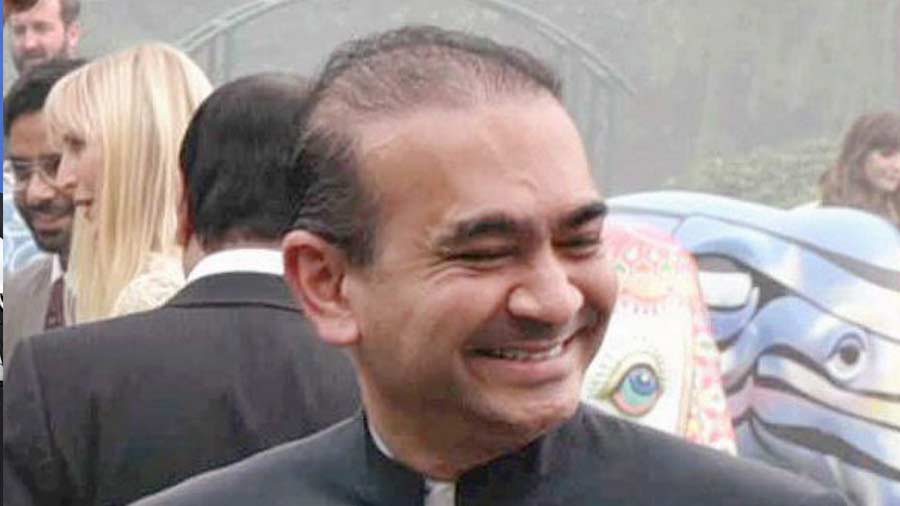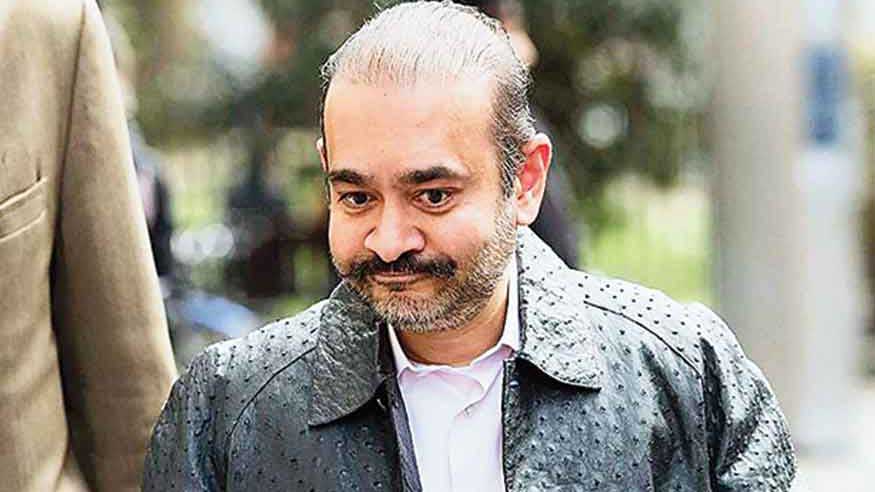Fugitive diamond merchant Nirav Modi on Wednesday lost his appeal against extradition to India on mental health grounds as the High Court in London ruled that his risk of suicide is not such that it would be either unjust or oppressive to extradite him to face charges of fraud and money laundering.
Lord Justice Jeremy Stuart-Smith and Justice Robert Jay, who presided over the appeal hearing at the Royal Courts of Justice earlier this year, said in their verdict that District Judge Sam Goozee's Westminster Magistrates' Court order from last year in favour of extradition was "sound".
The leave to appeal in the High Court had been granted on two grounds related to mental health under Article 3 of the European Convention of Human Rights (ECHR) and Section 91 of the Extradition Act 2003.
The 51-year-old fugitive diamond merchant has the option of further appeals in the UK and European courts and the process to bring him back to stand trial in India is unlikely to be a speedy one.
"Pulling these various strands together and weighing them in the balance so as to reach an overall evaluative judgment on the question raised by Section 91, we are far from satisfied that Mr Modi's mental condition and the risk of suicide are such that it would be either unjust or oppressive to extradite him," states the ruling, handed down remotely.
"It may be that the main benefit of the appeal has been to obtain the extensive further [Indian government] assurances that we have identified in the course of this judgment, which render the position clear to Mr Modi's advantage and the District Judge's decision supportable," the judges ruled.
Their verdict also finds every reason to accept that the government of India (GOI) will treat its assurances with "appropriate seriousness", enhanced by the fact that this is a high-profile case so that the care of Nirav Modi, who remains behind bars at Wandsworth Prison in south-west London since his arrest in March 2019, is likely to be subject to "heightened scrutiny" at all times.
"The GoI will surely appreciate that a failure to honour its assurances would be liable to have a significant adverse effect on the mutual trust that forms the basis of the extradition regime to which India and the United Kingdom are parties," the judges said.The judgment notes three sets of criminal proceedings against the diamantaire in India the Central Bureau of Investigation (CBI) case of fraud on the Punjab National Bank (PNB) which caused losses equivalent to over GBP 700 million, the Enforcement Directorate's (ED) case relating to the alleged laundering of the proceeds of that fraud and a third set of criminal proceedings involving alleged interference with evidence and witnesses in the CBI proceedings.
Then UK Home Secretary, Priti Patel, had ordered Nirav's extradition based on Judge Goozee's ruling in April last year and the case has been undergoing an appeals process since then.
The High Court ruling this week accepts that Nirav's risk of suicide in the event of extradition may be characterised as "high" or "substantial" but concludes that the risk of deterioration of the underlying depression and the risk of suicide cannot be considered in a vacuum.
"On the basis of the assurances that the GoI has given, we accept that there will be suitable medical provision and an appropriate plan in place for the management and medical care of Mr Modi, which will be provided in the knowledge that he is a suicide risk (i.e. a person who, in the absence of preventative measures, may or will attempt suicide and will or may succeed)," the ruling states.
"The evidence does not support a finding that the assured steps will eliminate the risk that Mr Modi will commit suicide altogether, still less the risk that he will attempt to do so," it notes.
Based on expert witness testimony, the verdict concludes that Nirav has so far displayed no features of psychotic illness and although he has exhibited "persistent suicidal ideation", he has neither attempted suicide or deliberate self-harm nor disclosed plans to do so, except in the "most vague and general way".
"It is common ground that his recurrent depressive disorder is likely to deteriorate in the event of extradition," the ruling concedes.
However, it also acknowledges the safety measures assured at Barrack 12 of Arthur Road Jail in Mumbai, where he is to be lodged on being extradited, which will ensure that there is effectively constant monitoring to reduce the risk of attempted suicide.
As he has lost this appeal hearing, Nirav Modi can approach the Supreme Court on a point of law of public importance, to be applied for to the Supreme Court against the High Court's decision within 14 days of a High Court verdict. However, this involves a high threshold as appeals to the Supreme Court can only be made if the High Court has certified that the case involves a point of law of general public importance.
Finally, after all avenues in the UK courts are exhausted, the diamantaire could still seek a so-called Rule 39 injunction from the European Court of Human Rights (ECHR).
Therefore, the process of bringing him back to India to be lodged at Arthur Road Jail in Mumbai and stand trial for fraud and money laundering amounting to an estimated USD 2 billion in the Punjab National Bank (PNB) loan scam case still has some way to go.
His legal team are yet to comment on any plans to appeal the High Court verdict.
Meanwhile, in New Delhi, the CBI said the judgement of UK High Court is a "significant achievement" in the context of its efforts to curb corruption.
"It is a reminder that fugitives, who have eluded the process of law after commission of large value frauds, cannot consider themselves above the process merely because they have changed jurisdictions," the CBI said in a statement.
"The CBI took painstaking efforts in effectively presenting the facts before the Hon'ble Court, especially since Mr. Nirav Modi had raised various issues with regard to prison conditions, availability of health facilities in India etc.," it said.
PTI












